BMW 1 Series vs Hyundai i20 - Differences and prices compared
Compare performance (300 HP vs 100 HP), boot space and price (28800 £ vs 17400 £) at a glance. Find out which car is the better choice for you – BMW 1 Series or Hyundai i20?
Costs and Efficiency:
Price and efficiency are often the first things buyers look at. Here it becomes clear which model has the long-term edge – whether at the pump, the plug, or in purchase price.
Hyundai i20 has a clearly advantage in terms of price – it starts at 17400 £, while the BMW 1 Series costs 28800 £. That’s a price difference of around 11400 £.
Fuel consumption also shows a difference: BMW 1 Series manages with 4.30 L and is therefore clearly perceptible more efficient than the Hyundai i20 with 5.20 L. The difference is about 0.90 L per 100 km.
Engine and Performance:
Under the bonnet, it becomes clear which model is tuned for sportiness and which one takes the lead when you hit the accelerator.
When it comes to engine power, the BMW 1 Series has a decisively edge – offering 300 HP compared to 100 HP. That’s roughly 200 HP more horsepower.
In acceleration from 0 to 100 km/h, the BMW 1 Series is convincingly quicker – completing the sprint in 4.90 s, while the Hyundai i20 takes 11.10 s. That’s about 6.20 s faster.
In terms of top speed, the BMW 1 Series performs evident better – reaching 250 km/h, while the Hyundai i20 tops out at 183 km/h. The difference is around 67 km/h.
There’s also a difference in torque: BMW 1 Series pulls significantly stronger with 400 Nm compared to 200 Nm. That’s about 200 Nm difference.
Space and Everyday Use:
Beyond pure performance, interior space and usability matter most in daily life. This is where you see which car is more practical and versatile.
Both vehicles offer seating for 5 people.
In curb weight, Hyundai i20 is clearly perceptible lighter – 1088 kg compared to 1465 kg. The difference is around 377 kg.
In terms of boot space, the BMW 1 Series offers hardly perceptible more room – 380 L compared to 352 L. That’s a difference of about 28 L.
In maximum load capacity, the BMW 1 Series performs slight better – up to 1200 L, which is about 35 L more than the Hyundai i20.
When it comes to payload, BMW 1 Series hardly perceptible takes the win – 510 kg compared to 472 kg. That’s a difference of about 38 kg.
Who comes out on top?
Overall, the BMW 1 Series shows itself to be outperforms in nearly all aspects and secures the title of DriveDuel Champion.
It convinces with the more balanced overall package and proves to be the more versatile choice for everyday use.
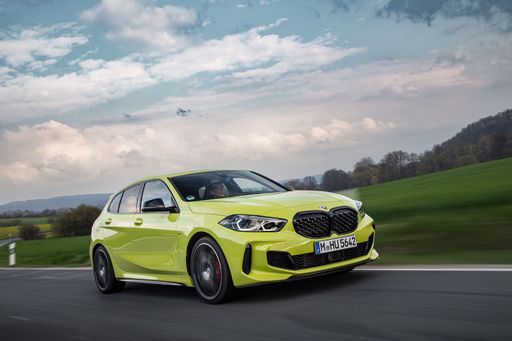
BMW 1 Series
Costs and Consumption
View detailed analysis
Engine and Performance
View detailed analysis
Dimensions and Body
View detailed analysis
BMW 1 Series
The BMW 1 Series is a compact premium hatchback that injects a proper sense of driving fun into everyday life, with sharp handling and a cabin that punches above its class. It’s a great pick for buyers who want sporty manners without losing practicality, and yes, you’ll still get that unmistakable BMW grin behind the wheel.
details
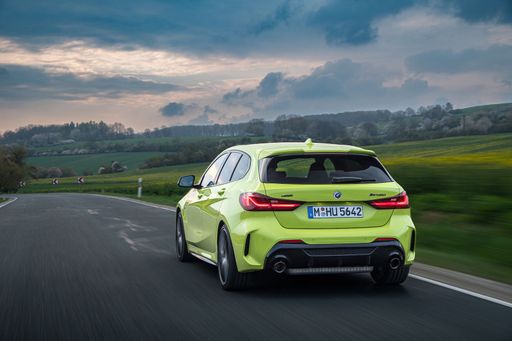
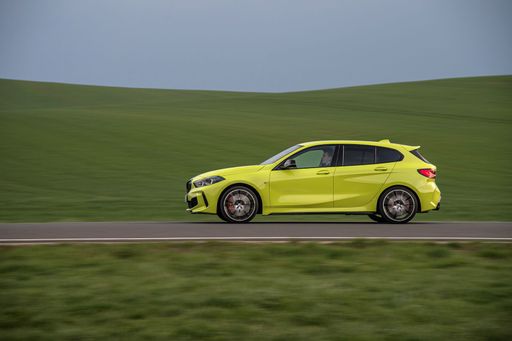
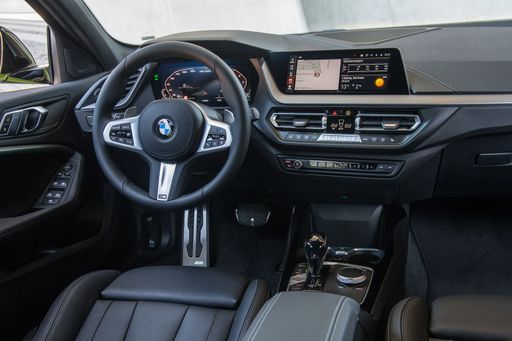
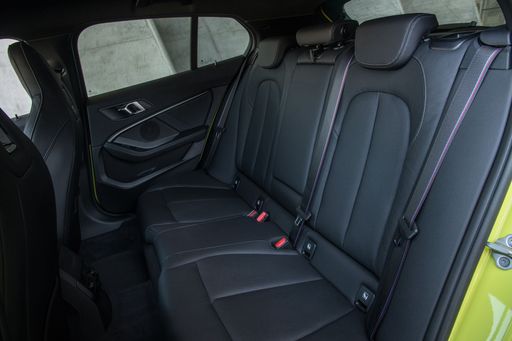
Hyundai i20
The Hyundai i20 is a cheeky small car that mixes smart styling with sensible practicality, feeling more polished and roomy than you might expect for the money. It’s an easy car to live with, offering engaging handling, a comfy cabin and useful equipment that make daily commutes and weekend errands notably less dull.
details





|

|
|
|
|
Costs and Consumption |
|
|---|---|
|
Price
28800 - 51100 £
|
Price
17400 - 24000 £
|
|
Consumption L/100km
4.3 - 7.6 L
|
Consumption L/100km
5.2 - 5.3 L
|
|
Consumption kWh/100km
-
|
Consumption kWh/100km
-
|
|
Electric Range
-
|
Electric Range
-
|
|
Battery Capacity
-
|
Battery Capacity
-
|
|
co2
112 - 173 g/km
|
co2
119 - 121 g/km
|
|
Fuel tank capacity
49 L
|
Fuel tank capacity
40 L
|
Dimensions and Body |
|
|---|---|
|
Body Type
Hatchback
|
Body Type
Hatchback
|
|
Seats
5
|
Seats
5
|
|
Doors
5
|
Doors
5
|
|
Curb weight
1465 - 1625 kg
|
Curb weight
1088 - 1190 kg
|
|
Trunk capacity
300 - 380 L
|
Trunk capacity
352 L
|
|
Length
4361 mm
|
Length
4065 - 4075 mm
|
|
Width
1800 mm
|
Width
1775 mm
|
|
Height
1459 mm
|
Height
1450 - 1455 mm
|
|
Max trunk capacity
1135 - 1200 L
|
Max trunk capacity
1165 L
|
|
Payload
475 - 510 kg
|
Payload
450 - 472 kg
|
Engine and Performance |
|
|---|---|
|
Engine Type
Diesel, Petrol MHEV, Diesel MHEV, Petrol
|
Engine Type
Petrol
|
|
Transmission
Automatic
|
Transmission
Automatic, Manuel
|
|
Transmission Detail
Dual-Clutch Automatic
|
Transmission Detail
Dual-Clutch Automatic, Manual Gearbox
|
|
Drive Type
Front-Wheel Drive, All-Wheel Drive
|
Drive Type
Front-Wheel Drive
|
|
Power HP
122 - 300 HP
|
Power HP
79 - 100 HP
|
|
Acceleration 0-100km/h
4.9 - 9.8 s
|
Acceleration 0-100km/h
11.1 - 13.7 s
|
|
Max Speed
210 - 250 km/h
|
Max Speed
166 - 183 km/h
|
|
Torque
230 - 400 Nm
|
Torque
113 - 200 Nm
|
|
Number of Cylinders
3 - 4
|
Number of Cylinders
3 - 4
|
|
Power kW
90 - 221 kW
|
Power kW
58 - 74 kW
|
|
Engine capacity
1499 - 1998 cm3
|
Engine capacity
998 - 1197 cm3
|
General |
|
|---|---|
|
Model Year
2024
|
Model Year
2024
|
|
CO2 Efficiency Class
D, C, F
|
CO2 Efficiency Class
D
|
|
Brand
BMW
|
Brand
Hyundai
|
What drive types are available for the BMW 1 Series?
The BMW 1 Series is offered with Front-Wheel Drive or All-Wheel Drive.
The prices and data displayed are estimates based on German list prices and may vary by country. This information is not legally binding.
